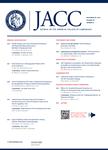版权所有:内蒙古大学图书馆 技术提供:维普资讯• 智图
内蒙古自治区呼和浩特市赛罕区大学西街235号 邮编: 010021

作者机构:Univ G DAnnunzio SS Annunziata Hosp Cardiovasc Clin Inst Cardiol Div CCU Chieti Italy
出 版 物:《JOURNAL OF THE AMERICAN COLLEGE OF CARDIOLOGY》 (美国心脏病学会志)
年 卷 期:1999年第33卷第5期
页 面:1227-1230页
核心收录:
学科分类:1002[医学-临床医学] 100201[医学-内科学(含:心血管病、血液病、呼吸系病、消化系病、内分泌与代谢病、肾病、风湿病、传染病)] 10[医学]
基 金:Institutional Fund for Clinical Research
主 题:急性病 双盲法 心电描记术 便携式 随访研究 帕罗西汀/治疗应用 不应期 电生理学/药物作用 二级预防 血清素摄取抑制药/治疗应用 晕厥 血管迷走神经性/诊断 晕厥 血管迷走神经性/药物疗法 晕厥 血管迷走神经性/病理生理学 倾斜台试验 治疗结果 成年人 女(雌)性 人类 男(雄)性 中年人
摘 要:OBJECTIVES The purpose of the study was to determine whether the well tolerated serotonin reuptake inhibitor paroxetine hydrochloride could prevent vasovagal syncope in patients resistant to or intolerant of previous traditional therapies. BACKGROUND Serotonergic mechanisms play a major role in the processes leading to neurocardiogenic vasovagal syncope, and serotonin reuptake inhibitors have been reported to be effective in preventing refractory syncope. METHODS Sixty-eight consecutive patients (26 men and 42 women, mean age 44.7 +/- 16.5 years) with recurrent syncope and positive head-up tilt test and in whom standard therapies with beta-adrenergic blocking agents, vagolytic, negative inotropic or mineral corticoid agents were ineffectual or poorly tolerated were referred for study. Patients randomly received either paroxetine at 20 mg once a day or a placebo. A head-up tilt test was then reperformed after one month of treatment, and the clinical effect was noted over a mean follow-up of 25.4 +/- 7.9 months. RESULTS The response rates (negative tilt test) after one month of treatment were 61.8% versus 38.2% (p 0.001) in the paroxetine and placebo groups, respectively. During follow-up spontaneous syncope was reported in six patients (17.6%) in the paroxetine group as compared to 18 patients (52.9%) in the placebo group (p 0.0001). Only one patient (2.9%) asked to be discontinued from the drug for severe side effects. CONCLUSIONS Paroxetine was found to significantly improve the symptoms of patients with vasovagal syncope unresponsive to or intolerant of traditional medications and was well tolerated by patients. (C) 1999 by the American College of Cardiology.